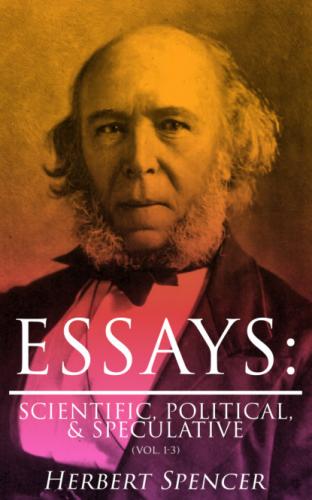physical phenomena are, however, secondary in importance. The root of this belief in another self lies in the experience of dreams. The distinction so easily made by us between our life in dreams and our real life, is one which the savage recognizes in but a vague way; and he cannot express even that distinction which he perceives. When he awakes, and to those who have seen him lying quietly asleep, describes where he has been, and what he has done, his rude language fails to state the difference between seeing and dreaming that he saw, doing and dreaming that he did. From this inadequacy of his language it not only results that he cannot truly represent this difference to others, but also that he cannot truly represent it to himself. Hence, in the absence of an alternative interpretation, his belief, and that of those to whom he tells his adventures, is that his other self has been away, and came back when he awoke. And this belief, which we find among various existing savage tribes, we equally find in the traditions of the early civilized races. 5. The conception of another self capable of going away and returning, receives what to the savage must seem conclusive verifications from the abnormal suspensions of consciousness, and derangements of consciousness, that occasionally occur in members of his tribe. One who has fainted, and cannot be immediately brought back to himself (note the significance of our own phrases "returning to himself," etc.) as a sleeper can, shows him a state in which the other self has been away for a time beyond recall. Still more is this prolonged absence of the other self shown him in cases of apoplexy, catalepsy, and other forms of suspended animation. Here for hours the other self persists in remaining away, and on returning refuses to say where he has been. Further verification is afforded by every epileptic subject, into whose body, during the absence of the other self, some enemy has entered; for how else does it happen that the other self, on returning, denies all knowledge of what his body has been doing? And this supposition that the body has been "possessed" by some other being, is confirmed by the phenomena of somnambulism and insanity. 6. What, then, is the interpretation inevitably put upon death? The other self has habitually returned after sleep, which simulates death. It has returned, too, after fainting, which simulates death much more. It has even returned after the rigid state of catalepsy, which simulates death very greatly. Will it not return also after this still more prolonged quiescence and rigidity? Clearly it is quite possible—quite probable even. The dead man's other self is gone away for a long time, but it still exists somewhere, far or near, and may at any moment come back to do all he said he would do. Hence the various burial-rites—the placing of weapons and valuables along with the body, the daily bringing of food to it, etc. I hope hereafter to show that, with such knowledge of the facts as he has, this interpretation is the most reasonable the savage can arrive at. Let me here, however, by way of showing how clearly the facts bear out this view, give one illustration out of many. "The ceremonies with which they [the Veddahs] invoke them [the shades of the dead] are few as they are simple. The most common is the following. An arrow is fixed upright in the ground, and the Veddah dances slowly round it, chanting this invocation, which is almost musical in its rhythm:"
"Mâ miya, mâ miy, mâ deyâ,
Topang koyihetti mittigan yandâh?"
"My departed one, my departed one, my God!
Where art thou wandering?"
"This invocation appears to be used on all occasions when the intervention of the guardian spirits is required, in sickness, preparatory to hunting, etc. Sometimes, in the latter case, a portion of the flesh of the game is promised as a votive offering, in the event of the chase being successful; and they believe that the spirits will appear to them in dreams and tell them where to hunt. Sometimes they cook food and place it in the dry bed of a river, or some other secluded spot, and then call on their deceased ancestors by name. 'Come and partake of this! Give us maintenance as you did when living! Come, wheresoever you may be; on a tree, on a rock, in the forest, come!' And they dance round the food, half chanting, half shouting, the invocation."—Bailey, in Transactions of the Ethnological Society, London, N. S., ii., p. 301–2.
[30] Since the foregoing pages were written, my attention has been drawn by Sir John Lubbock to a passage in the appendix to the second edition of Prehistoric Times, in which he has indicated this derivation of tribal names. He says: "In endeavouring to account for the worship of animals, we must remember that names are very frequently taken from them. The children and followers of a man called the Bear or the Lion would make that a tribal name. Hence the animal itself would be first respected, at last worshipped." Of the genesis of this worship, however, Sir John Lubbock does not give any specific explanation. Apparently he inclines to the belief, tacitly adopted also by Mr. McLennan, that animal-worship is derived from an original Fetichism, of which it is a more developed form. As will shortly be seen, I take a different view of its origin.
[31] Proceedings of the Royal Society of Tasmania, iii., p. 280–81.
[32] I have since found, however, that the name Dawn, which occurs in various places, seems more frequently a birth-name, given because the birth took place at dawn.
